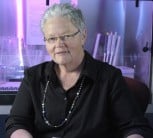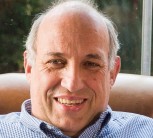Despite the fact that access to clean and disease-free drinking water is a basic human right enshrined in South Africa’s constitution, utilities often find it difficult to produce safe drinking water as they have to deal with highly contaminated water sources. Poor sanitation and sewage contamination often leads to polluted surface water, which in turn is a major challenge for water utilities.
Prof Fanus Venter, Prof Maureen Taylor, Prof Riana Bornman
September 19, 2016


Professor Fanus Venter completed all his degrees, including his undergraduate (BSc) and doctoral degrees, at the University of Pretoria (UP). He is Deputy Director of UP’s Forestry and Agricultural Biotechnology Institute (FABI), and has been an academic staff member at the University for the past 25 years.
As Deputy Director of FABI, Prof Venter focuses on creating an enabling environment for students to be productive and address important issues related to sustainable agriculture and forestry. During his time as a faculty member at UP, Prof Venter has forged significant research collaborations with colleagues in his and other departments.
His interest in systematics prompted him to become involved in the structures that regulate the naming of prokaryotes (any organism that lacks a distinct nucleus and other organelles due to the absence of internal membranes). Assigning distinct, universally accepted names to these organisms allows scientists to clearly communicate their research where there may be language or geographic barriers. Using a stable naming system has the added benefit of linking all available information on a species together for use by scientists.
Prof Venter is part of a group of microbiologists from different parts of the world known as SeqCode. The group recently developed and launched a new code for naming bacteria based on genome sequences as type. “We believe it will revolutionise the field as it allows the permanent naming of uncultured bacteria, which represent at least 99% of the bacterial diversity on our planet,” Prof Venter says.
He adds that the launch of SeqCode has been a highlight for him, and was the culmination of the efforts of a group of dedicated microbiologists over a period of four years.
Prof Venter says that South Africa is known for its large diversity of microbes, and hopes that through his research, he’ll be able to help unlock the hidden potential of this biodiversity as well as our understanding of the role of microbes in the functioning of the environment.
His hero in academia is Carl Woese (1928 – 2012), an American microbiologist who developed the first molecular tools to make sense of the bacterial diversity we encounter.
Prof Venter hopes to continue to conduct research that interests him. “This means I will enjoy every moment of my research and share my knowledge with my students.”
For relaxation, he enjoys listening to classical music. He says he is interested in South African art and is “somewhat of a compulsive book buyer”, though he concedes that he seldom finds enough time to read most of the books he buys.
 Story
Story
This edition is curated around the concept of One Health, in which the University of Pretoria plays a leading role globally, and is based on our research expertise in the various disciplines across healthcare for people, the environment and animals.
 Story
Story
Paediatric neurosurgeon Professor Llewellyn Padayachy, Head of the Department of Neurosurgery at the University of Pretoria’s (UP) Steve Biko Academic Hospital, is redefining how brain-related diseases are diagnosed and treated, especially in low-resource settings. He’s at the forefront of pioneering work in non-invasive techniques to assess and measure raised pressure inside the skull,...
 Infographic
Infographic
Africa faces immense challenges in neurosurgery, such as severe underfunding, a lack of training positions and a high burden of disease. There is one neurosurgeon per four million people, far below the WHO’s recommendation of one per 200 000. This shortage, compounded by the lack of a central brain tumour registry and limited access to diagnostics, severely impacts patient outcomes.
Copyright © University of Pretoria 2025. All rights reserved.
Get Social With Us
Download the UP Mobile App